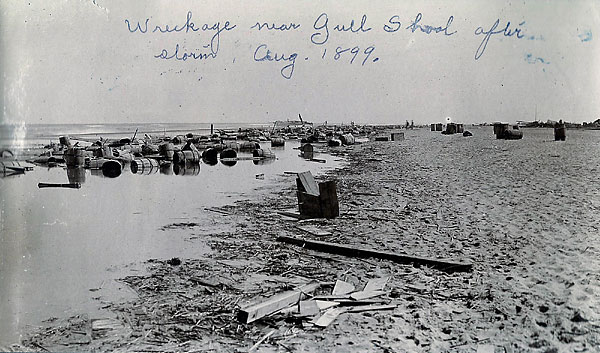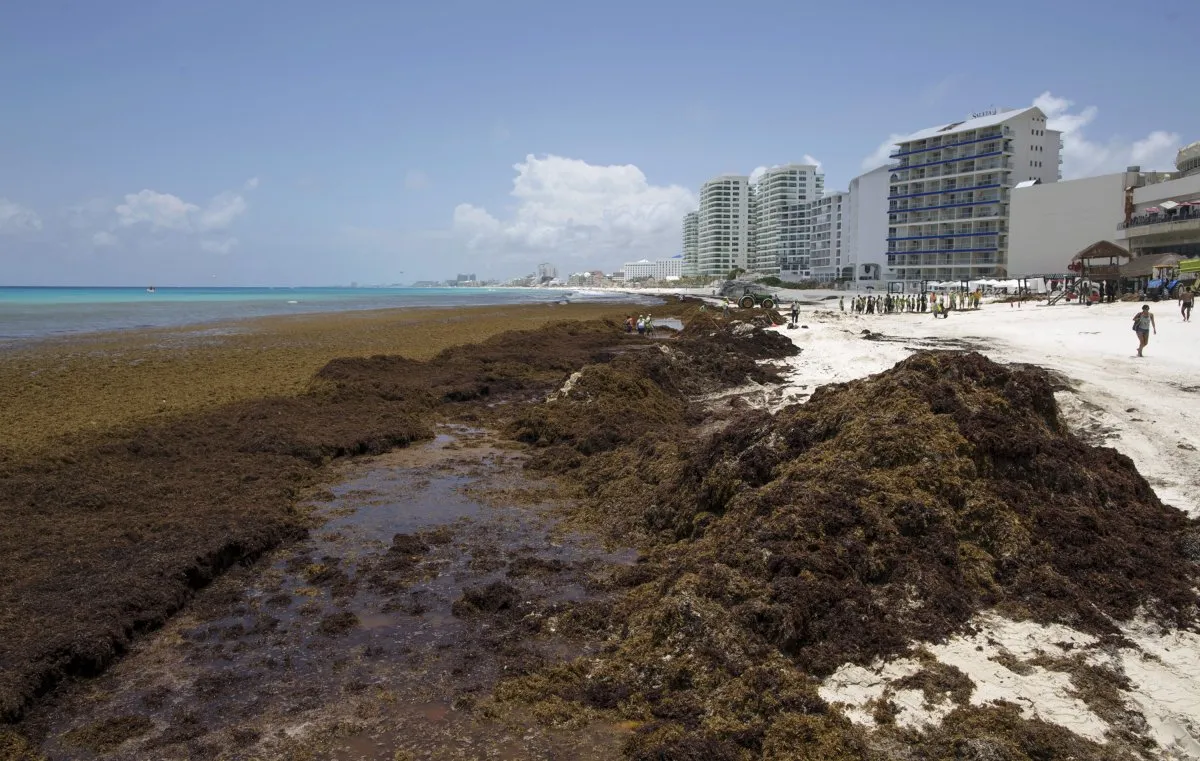The Signs of Christmas
Sermon Series
Sign #2: The Virgin Birth
Matthew 1:18-25
Introduction
The Gospel of Matthew says that Mary, the mother of Jesus, was a virgin when she gave birth to the Son of God. The world laughs at this idea and mocks it as if it were a myth. Even worse, some proclaiming Christians doubt the Virgin Birth; some don’t believe it at all.
But the truth is, there is no hope of salvation apart from the Virgin Birth. If the Virgin Birth of Jesus Christ did not happen, the foundation of Christianity collapses. The Virgin Birth is not incidental: it is fundamental to our faith. This morning we will look at why the virgin birth is a sign that points the world to the Savior.
Prayer
The Virgin Birth Points to Jesus as the Messiah
“18 Now the birth of Jesus Christ took place in this way. When his mother Mary had been betrothed to Joseph, before they came together she was found to be with child from the Holy Spirit.
Engagement (betrothed) in ancient Judaism was legally binding and required divorce if it were to be broken, but sexual relations and living together under one roof were not permitted until after the marriage ceremony.[1] But now Joseph discovers that she is pregnant (and he knows that it wasn’t him.)
19 And her husband Joseph, being a just man and unwilling to put her to shame, resolved to divorce her quietly. 20 But as he considered these things, behold, an angel of the Lord appeared to him in a dream, saying, “Joseph, son of David, do not fear to take Mary as your wife, for that which is conceived in her is from the Holy Spirit. 21 She will bear a son, and you shall call his name Jesus, for he will save his people from their sins.”
Joseph could therefore be spoken of already as Mary’s husband, but Matthew emphasizes this was “before they came together.” Joseph assumes that she has been unfaithful to him. When Joseph is referred to as “a just or righteous man” it does not mean that he perfect, only that he was law-abiding, and upright in character. Because of the character of Joseph, he wants to spare her any public disgrace or even death (Duet. 22:23-24). Jewish law required a man to divorce (or that she be stoned) an adulterous wife. She would have been marked for life as unfaithful, and an adulterous.
The angel explains in a dream that Mary has not been unfaithful and that her child has been supernaturally conceived. As he calls him “son of David” the angel is reminding him of messianic lineage. It is as if the angel is saying, “remember, there is a messiah coming through your lineage.” He commands him to go ahead and marry her thereby legally making the Christ child a son of David.
In this angelic dream there are no images of delivering the Israelites from the Roman oppression instead the angel emphasizes salvation from their sins. He is to be named Jesus which means Yahweh is salvation or “the Lord saves.”
22 All this took place to fulfill what the Lord had spoken by the prophet: 23 “Behold, the virgin shall conceive and bear a son, and they shall call his name Immanuel” (which means, God with us) (Isaiah 7:14). 24 When Joseph woke from sleep, he did as the angel of the Lord commanded him: he took his wife, 25 but knew her not until she had given birth to a son. And he called his name Jesus.”
Historically, the virgin birth was an essential Christian doctrine. The amended version of the Nicene Creed in 381 says, “For us men and for our salvation, he came down from heaven, and by the Holy Spirit was incarnate of the Virgin Mary, and became man.”
The Apostle’s Creed says, “I believe in God, the Father almighty, Creator of heaven and earth, and in Jesus Christ, his only Son, our Lord, who was conceived by the Holy Spirit, born of the Virgin Mary…”’
This morning I want to answer the question of, “Why is it so important that Jesus had to be born by a virgin birth?” One answer would be because God prophesied that He would be (Isa. 7:14), but God could have chosen any event or miracle to be fulfilled to show Jesus to be the Messiah – why a virgin birth?
Original Sin
Our answer begins at the beginning of time with the Doctrine of Original Sin. Original Sin is the biblical teaching that sin is not just an act but also a condition that has been handed down from Adam to all mankind. When Adam sinned in the Garden, his physical and spiritual nature was corrupted—his body was no longer eternal but would eventually die, and his soul was no longer spiritually alive but separated from God.
Separation is an essential theological theme in Scripture. In the Bible, separation is how death happens. Ecclesiastes 12:7, in speaking to physical death, Solomon writes, “and the dust returns to the earth as it was, and the spirit returns to God who gave it.”
Death is the separation of the body from the soul. When the soul leaves, the body dies. On the other hand, spiritual death is defined as the separation of the soul from God. Isaiah 59:2 says, “But your iniquities have made a separation between you and your God.”
Original Sin Results in Death
The Bible defines death as a separation:
separation of the soul from the body (physical death) and separation of soul from God (eternal death).
Because God is spirit, holy, and without sin, the soul of a sinner cannot be in His presence. Therefore, sin acts as the means to detach (or separate) us from God.
Because Adam sinned and was separated from God, all who are born of Adam are also born separated from God. Consequently, when the soul is separated from God (Who is the source of spiritual life), the soul is dead.
This is why Ephesians 2:1-3 describes the spiritual state of a person before Christ by saying, “And you were dead in the trespasses and sins in which you once walked, following the course of this world, following the prince of the power of the air, the spirit that is now at work in the sons of disobedience—among whom we all once lived in the passions of our flesh, carrying out the desires of the body and the mind, and were by nature children of wrath, like the rest of mankind.”
For this reason, Jesus claims we must be spiritually resurrected (or born again) to enter the Kingdom of God (John 3:3-5). As we know, spiritual life (the reuniting of the soul with God) is only found in repentance and faith in Jesus Christ. However, the Bible teaches that if a person remains spiritually dead by their unwillingness to repent and trust in Christ, they will experience what is called the second death. This is the eternalseparation of your soul from God (a.k.a. hell).
Revelation 21:8 says, “But as for the cowardly, the faithless, the detestable, as for murderers, the sexually immoral, sorcerers, idolaters, and all liars, their portion will be in the lake that burns with fire and sulfur, which is the second death.”
Ultimately, we learn two important truths in this doctrine of Original Sin. First, Adam’s sin was the reason Adam died (physically and spiritually). It’s also the reason why all of humanity is born spiritually dead (needing to be born again) and will experience physical death.
Romans 5:12 says, “Therefore, just as sin came into the world through one man (Adam), and death through sin, and so death spread to all men because all sinned.”
Original Sin and Federal Headship
The second lesson we learn in the Doctrine of Original Sin is the concept of “federal headship” or “covenant representation.”
When Paul says, “so death spread to all men because all sinned.” He’s teaching that when Adam sinned, we all sinned with him or in him. Adam was the human race’s covenant representative before God in the covenant of works that was established in the Garden of Eden. That is, God established a law for man to follow (to not eat of the forbidden tree), and Adam failed to keep his portion of the covenant.
Now, because all humanity was, in a real sense, genetically inAdam, when Adam sinned and broke that covenant, we all sinned with him or in him. Therefore, when Adam was genetically corrupted, we were genetically corrupted. When Adam died spiritually, we died spiritually. When Adam was cursed, we were cursed. Ultimately, when Adam fell, all of humanity fell with him.
This is why Scripture teaches for a person to be saved, they must go from being in Adamto being in Christ (1 Corinthians 15:22). We need to switch from Adam (who failed to keep the law) to Christ (who kept the law, perfectly). We need to go from the man who is not righteous to the only Man who is righteous—Jesus Christ.
So, because of Adam I have inherited a sin nature, you may say, “that’s not fair. I am being judged because of something Adam did?” But have you sinned? Yes, “all have sinned and fall short of the glory of God (Romans 3:23).” But if you think it is unfair to be linked with Adam “then we should also think that it is unfair for us to be represented by Christ and to have his righteousness imputed to us by God.”[2] One man brought sin into the world and one man defeated it for the world.”
Romans 5:17-19 says, “For if, because of one man’s trespass (Adam), death reigned through that one man, much more will those who receive the abundance of grace and the free gift of righteousness reign in life through the one man Jesus Christ. Therefore, as one trespass (though Adam) led to condemnation for all men, so one act of righteousness (through Christ) leads to justification and life for all men.For as by the one man’s disobedience (Adam) the many were made sinners, so by the one man’s obedience (Christ) the many will be made righteous.”
Jesus, the Second Adam
As you can see, Jesus is a second and better Adam. In fact, God prepared His people for and pointed them to this need for a second Adam. For example, in the Old Testament, God’s covenantal mark of circumcision, while symbolic for several reasons, aims to demonstrate man’s sinfulness by marking the male’s reproductive organ.
It was a physical reminder to God’s people that sin is passed down from generation to generation. Namely, that sinful man can only reproduce sinful men. But more than that, it would remind God’s people that salvation would not be from men but by from God. Somehow God would have to break this chain of sin being passed from generation to generation.
Even in Isaiah 7:14, we see the prophet foretelling God will step in when he wrote, “Behold, a virgin will be with child and bear a son, and she will call His name Immanuel.”
God’s people knew to expect a Messiah that would come through a supernatural birth
—a pregnancy and birth that included a virgin woman.
This Messiah would be fully human and fully God. He would have His humanity from His mother and His divinity from God the Father. But most of all, He would not inherit the corruption, curse, or covenant representation of Adam.
He would be conceived by the Holy Spirit, free of sin, legally adopted by an earthly father of the tribe of Judah, born of the line of David, and would stand before the world as a new Adam. Namely, He would keep the Law with perfection, to give His life as a ransom for many, and to spiritually reproduce others who were not like the first Adam but like Him.
So how does this all come together? Why is the virgin birth of Jesus absolutely necessary? Because if Jesus were born of Joseph, He would have had original sin—He would have been born physically corrupted, spiritually dead, sinful, and cursed. If that were the case, Jesus could not pay for the sins of others because He would have to pay for His own sin with His own life.
Therefore, the cross would not be a moment of redemption but simply the passing away of another sinner. As a result, no justification could be given by faith. No redemption could be bought by His blood. No wrath could be satisfied by His death. And no resurrection could occur to validate His righteousness.
Without the virgin birth, all of Christianity falls apart.
Therefore, during this Christmas season, we don’t simply celebrate thatChrist was born, but we also celebrate how Christ was born. He’s the first fruits of the harvest to come, the firstborn from the dead, and for those who trust in Him, the One who reconciles them to God for eternity.
Conclusion
“Radio commentator Paul Harvey tells of a man who did not believe that God had taken human flesh in the person of Jesus. He was a kind, decent family man, but he was skeptical about the message of Christmas and couldn’t pretend otherwise. So on Christmas eve, he told his wife that he was not going to church with her and the children, because he just couldn’t believe. So they went without him.
Shortly after the family left, snow began to fall. As he sat in his fireside chair reading the paper, he was startled by a thudding sound against the house, then another, then another. At first he thought someone must be throwing snowballs against the living room window. But when he went to investigate, he found a flock of birds, huddled miserably in the snow. They had been caught in the storm, and in a desperate search for shelter, had tried to fly through his window.
He didn’t want to leave the poor creatures there to freeze. He thought of the barn where his children stabled their pony. He put on his coat and boots and tromped through the deepening snow to the barn. He opened the door wide and turned on the light. But the birds didn’t come in. He went back to the house and got some bread crumbs and sprinkled a path to the barn, but the cold creatures ignored the food and continued to flop around helplessly in the snow.
He tried catching them and shooing them into the barn, but they scattered in every direction, frightened by his well-meaning actions. As he puzzled over how he could help save these frightened creatures from sure death, the thought struck him, “If only I could become a bird and speak their language, then I could show them the way to safety in the warm barn.” At that moment, bells from the church rang out through the silent, falling snow, heralding the birth of the Savior. The message of Christmas suddenly made sense, and he dropped to his knees in the snow.
It is possible to believe in the virgin birth and incarnation of the Savior and yet not be saved. Salvation does not depend upon affirming the creeds. “The demons also believe” (James 2:19). Salvation depends upon personally receiving the free gift of eternal life which God offers to you through His eternal Son who took on human flesh through the virgin Mary on that first Christmas, who offered Himself as the substitute for sinners on the cross. If God is truly with us in Christ, then we must come to God only through Christ.”[3]
____________________
[1] Craig Blomberg. The New American Commentary, Vol. 22. Matthew (Nashville, Tennessee: Broadman), 59.
[2] Wayne Grudem, Systematic Theology, An Introduction to Biblical Doctrine (Grand Rapids, Michigan; Zondervan Publishing, 1994) 495.
[3] https://bible.org/seriespage/christmas-1996-virgin-birth-why-believe-it-matthew-118-25-luke-126-38



